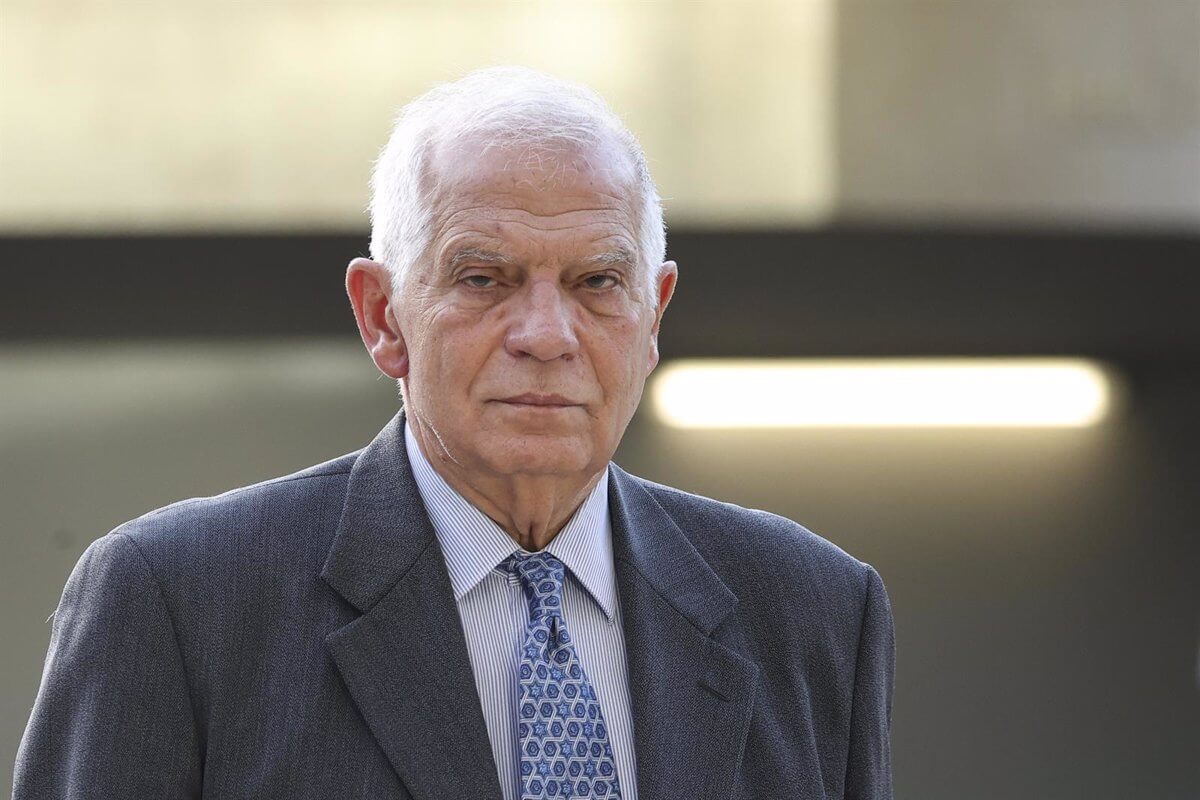Following the Foreign Affairs Council meeting on Monday, European Union (EU) foreign policy chief Josep Borrell warned Serbia and Kosovo to “defuse unnecessary and counterproductive tensions… that are reaching a very, very dangerous level” over the license plates issue before the 21 November deadline.
Earlier this month, tensions erupted in northern Kosovo after Prime Minister (PM) Albin Kurti announced the gradual implementation of Kosovan license plates, first with warnings until 21 November, fines for the next two months, and finally a complete ban from 21 April next year. Furthermore, the Police Inspectorate of Kosovo suspended northern police chief Nenad Djuric over his refusal to enforce the government-mandated license plates. Subsequently, 10 ethnic Serbian lawmakers, 10 prosecutors, and 576 police officers in Mitrovica region resigned.
Briefed EU Foreign Ministers on the latest on the Belgrade - Pristina Dialogue
— Josep Borrell Fontelles (@JosepBorrellF) November 14, 2022
We are facing the most serious crisis since 2013. Both parties need to find a way forward to lower tensions
From partners aspiring to a European future, we expect readiness to find European solutions pic.twitter.com/SuTKWRVbUU
Following the unrest, North Atlantic Treaty Organization (NATO) Secretary-General Jens Stoltenberg spoke with Serbian President Aleksandar Vučić and Kurti separately and insisted that diplomacy was the only way ahead. Vučić, however, accused Pristina of “brutally violating the Brussels agreement with its unilateral moves.”
Thereafter, Kosovan President Vjosa Osmani called for snap elections in four municipalities in northern Kosovo on 18 December. She noted that international observers would be invited and that the government “will undertake all necessary measures in order that citizens, regardless of ethnicity, feel protected, safe and carry out their constitutional rights.”
In this respect, Borrell stated that the dismissal of Djuric and the resignation of various officials has “created a vacuum,” where the “worst can happen.” He thus urged both parties to “show more flexibility.”
“I can say that we are facing the most serious, the most dangerous crisis since 2013 – of the last ten years,” he said, adding that both sides should “urgently show readiness to find a way forward to lower these tensions.”
“Chief negotiators will start working here in BXL on the next steps. They will start working 2night. The Kosovo side is already arriving 2night. I am ready to convene the leaders if negotiators manage to advance towards a […] solution on the issue of plates before the 21 Nov.”
— European Union in Kosovo (@EUKosovo) November 14, 2022
Borrell also stressed that violating the EU-facilitated Belgrade-Pristina Dialogue was “not acceptable.” “With partners aspiring for a European future, we expect a European behaviour,” he affirmed. “They have to decide which way they want to go: towards the European Union or towards the past,” the foreign policy chief declared.
In a similar vein, NATO Deputy Assistant Secretary-General for Political Affairs and Security Policy Javier Colomina emphasised the “continued stabilising role” played by the NATO-led and the United Nations (UN)-mandated Kosovo Force (KFOR) that “guarantees a safe and secure environment and freedom of movement for all communities living in Kosovo.”
Additionally, Borrell supported the French-German proposal to normalise ties between the two neighbours. According to the proposal, Serbia and Kosovo could set up Permanent Missions, like embassies, in each other’s countries, respect territorial integrity, develop good neighbourly relations based on equal rights, settle disputes through diplomacy instead of using force, and contribute to regional security.
However, Vučić has rejected the proposal, saying that it goes against the Serbian Constitution, which does not recognise Kosovo’s independence.
#Kosovo - #Serbia dialogue is officially facilitated by #EU & only supported by #US. #Russia is an active player (acting unofficially thru its proxy Serbia) by tightening the ropes.
— Meliza Haradinaj (@MelizaHaradinaj) November 13, 2022
Bc of this & its high stakes in present day RKS, #US should lead to make it finished business!
Kosovo, meanwhile, argues that the plan does not recognise Pristina formally but merely suggests that it exists for the countries that do not consider it to be independent, namely Spain, Greece, Cyprus, Romania, Slovakia, and Serbia.
Former political advisor Driton Tali has stressed that “it is unwise to expect Vučić to willingly accept any agreement that officially recognises Kosovo’s sovereignty.” He argues that for Belgrade to accept such an agreement would require “extensive international effort and pressure.”

